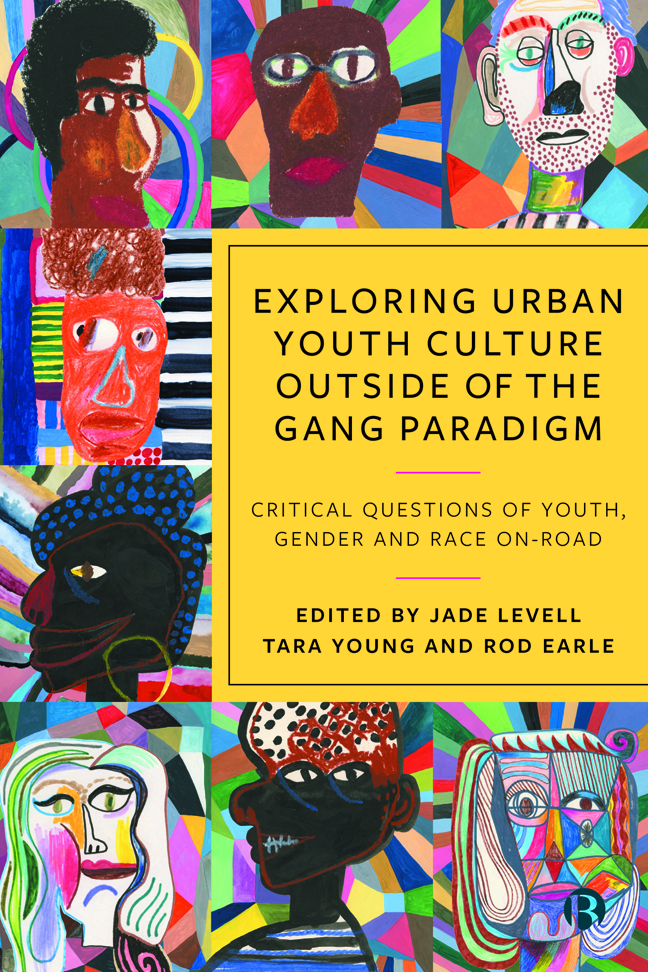 Exploring Urban Youth Culture Outside of the Gang Paradigm
Exploring Urban Youth Culture Outside of the Gang Paradigm Book contents
- Frontmatter
- Contents
- Notes on Contributors
- Foreword
- Preface
- 1 Introduction: Youth and On-Road – Making Gender and Race Matter
- 2 Black, British Young Women On-Road: Intersections of Gender, Race and Youth in British Interwar Youth Penal Reform
- 3 Tainted Love: Intimate Relationships and Gendered Violence On-Road
- 4 (The) Trouble with Friends: Narrative Stories of Friendship and Violence On-Road
- 5 The Sexual Politics of Masculinity and Vulnerability On-Road: Gender, Race and Male Victimisation
- 6 The Road, in Court: How UK Drill Music Became a Criminal Offence
- 7 On-Road Inside: Music as a Site of Carceral Convergence
- 8 Jeta e Rrugës: Translocal On-Road Hustle, Within and from Albania
- 9 ‘He's shown me the road’: Role Model and Roadman
- 10 Diary of an On-Road Criminologist: An Auto-Ethnographic Reflection
- 11 Conclusions, Compromises and Continuing Conversations
- Index
Foreword
Published online by Cambridge University Press: 24 January 2024
- Frontmatter
- Contents
- Notes on Contributors
- Foreword
- Preface
- 1 Introduction: Youth and On-Road – Making Gender and Race Matter
- 2 Black, British Young Women On-Road: Intersections of Gender, Race and Youth in British Interwar Youth Penal Reform
- 3 Tainted Love: Intimate Relationships and Gendered Violence On-Road
- 4 (The) Trouble with Friends: Narrative Stories of Friendship and Violence On-Road
- 5 The Sexual Politics of Masculinity and Vulnerability On-Road: Gender, Race and Male Victimisation
- 6 The Road, in Court: How UK Drill Music Became a Criminal Offence
- 7 On-Road Inside: Music as a Site of Carceral Convergence
- 8 Jeta e Rrugës: Translocal On-Road Hustle, Within and from Albania
- 9 ‘He's shown me the road’: Role Model and Roadman
- 10 Diary of an On-Road Criminologist: An Auto-Ethnographic Reflection
- 11 Conclusions, Compromises and Continuing Conversations
- Index
Summary
In Exploring Urban Youth Culture Outside of the Gang Paradigm: Critical Questions of Youth, Gender and Race On-Road, editors Levell, Young and Earle usefully offer a deep analysis of the embeddedness of deficit narratives censuring the on-road subculture that frames the everyday lives of racialised and working-class young people. The contributors take a deep dive into the ways in which the marginalised are constructed in youth culture rhetoric and public policy discourses, and question the societal and environmental factors that create and sustain racism and disadvantage. As such, they decipher the cascading effect of structural inequalities to provide a critical analysis of how racially minoritised youths are treated in education and youth services. Indeed, they argue that because racism is so entrenched in our society, inequality and disadvantage play a pivotal role in the growth and development of marginalised youth. In other words, structural and institutional racism, which is endemic to British society and within education, child welfare and youth justice systems, plays a significant role in the problems that bring racially minoritised children to the attention of child welfare and youth justice services and contributes to the significant overrepresentation of Black children in the care system.
I think it is worth considering that by virtue of their disadvantaged racial and socioeconomic backgrounds, Black children and young people are typically under-served, under-supported, intensely surveilled and over-policed (Bernard and Carlile, 2021; Bernard and Harris, 2019). As Johnston and Akay (2022) observe, racially minoritised young people are often criminalised based on their friendship groups, as well as for the music they listen to and where their habits and behaviours are seen as deviant. It is important to restate that assumptions of deviance are habitually made, and that Black children are often perceived as less innocent than White children and somehow less deserving of support and protection (Bernard, 2019). Yet, the realities of racism mean that Black children often experience adultification, and other subtle and unconscious societal and race-based biases that negatively affects the ways they are treated in the child welfare and youth sector (Bernard, 2019). The most shining example to illustrate a growing recognition of the ways adultification manifest in the safeguarding arena is in the case of Child Q, a 15-year-old Black girl with multiple inequalities, who was strip-searched by police officers in her school (UK Parliament, 2022).
- Type
- Chapter
- Information
- Exploring Urban Youth Culture Outside of the Gang ParadigmCritical Questions of Youth, Gender and Race On-Road, pp. viii - xPublisher: Bristol University PressPrint publication year: 2023


